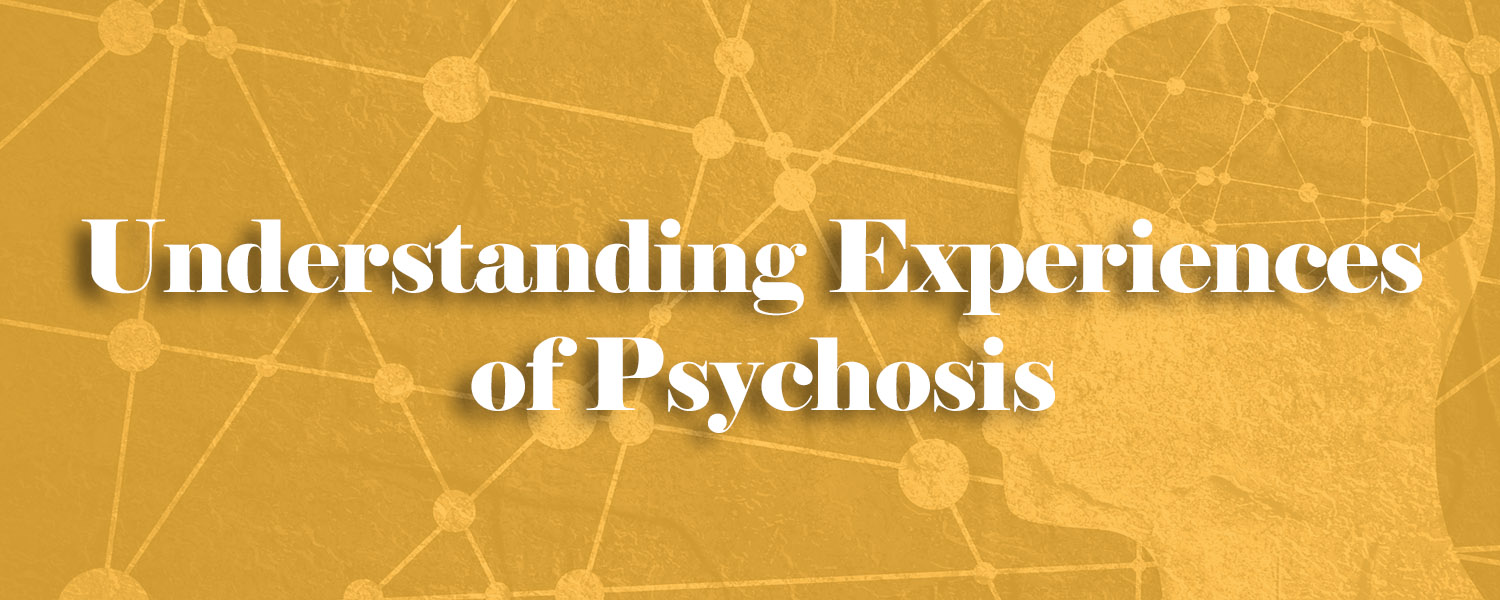
What is Psychosis?
You may feel you don’t fully understand what psychosis is and you are very confused. These days, recovering a meaningful life is realistically possible for the person you care for. For more information on recovery see Module 12. You may also feel overwhelmed by information and can’t work out what is important. This section aims to make things a bit clearer.
Psychosis is a mental health problem in which people appear to lose touch with reality. The most common ways this happens are:
- Believing things that are generally accepted to be untrue by other people. These are often called delusions
- Not being able to think straight and so sounding very muddled and confused, often called thought disorder
- Experiencing things that aren’t really happening e.g. hearing or seeing things that other people can’t, often called hallucinations
Psychosis is an umbrella term that covers lots of different conditions in which these experiences can occur. Your relative may have been given one of the following diagnoses.
Watch Julie talk about a relative’s view of psychosis from a mother’s perspective.
Psychotic episode
This is quite a general description applied to people who experience some combination of psychotic symptoms, often including delusions and hallucinations. Often when people are first seen by mental health services this is the most useful way of describing their difficulties. This is because we cannot yet say whether this is likely to be a one-off episode of problems or the start of continuing or recurring difficulties.
Postpartum psychosis
About one in a thousand women who give birth have an episode of psychosis very shortly after the birth. Often this has the characteristics of a manic episode. Some of these women will only ever have mental health difficulties around the time of childbirth. Others may experience psychosis at other times too.
Bipolar disorder
There is more information about bipolar disorder in the next module. People who experience major swings in mood, either high or low, may also have psychotic symptoms when their changes in mood are really severe. Generally, these symptoms are in keeping with their mood. For example, someone who is manic may believe they have special powers or hear voices telling them they are very important. Someone who is very depressed may have delusions about having a terrible physical illness or being guilty of a crime.
Delusional disorder
A diagnosis of delusional disorder may be given when someone has developed a set of delusional ideas, but does not show other signs of psychosis. They may be functioning well in many areas of life, but the delusions may be very fixed and preoccupy them a lot. This may lead to risks or difficulties with other people.
Drug induced psychosis
This diagnosis applies to people whose symptoms of psychosis seem to be obviously a result of recent drug use. Typically, they were doing fine until an occasion when they have used a lot of drugs and this is when the psychotic symptoms started. In drug-induced psychosis, the symptoms will generally get better within a few days or weeks, often without needing treatment. Cocaine, amphetamines and crystal meth are among the drugs that may cause drug-induced psychosis. Other drugs, such as cannabis does seem to make psychosis worse, but the diagnosis of drug-induced psychosis is generally kept for situations where recent drug use seems to be the main cause of psychosis.
Schizophrenia
Your friend or relative with psychosis may be given the diagnosis schizophrenia, or you may find information about schizophrenia on the internet and wonder whether it applies to them. People sometimes find schizophrenia to be a frightening diagnosis, and currently there is a lot of discussion about whether it is still a useful term to use. This is partly because it can be used to describe such a wide range of outcomes. Some people with schizophrenia have one episode of illness but recover really well. Others can have significant problems in functioning over many years.
Schizo-affective disorder
Your friend or relative may be given this diagnosis if their episodes of illness include a mixture of symptoms. They may have either a high or manic mood or a low mood, together with psychotic symptoms. The psychotic symptoms are similar to those experienced by people with a schizophrenia diagnosis, and tend to start together with the change in mood. There is quite a lot of debate about whether schizoaffective disorder is really a separate condition.

